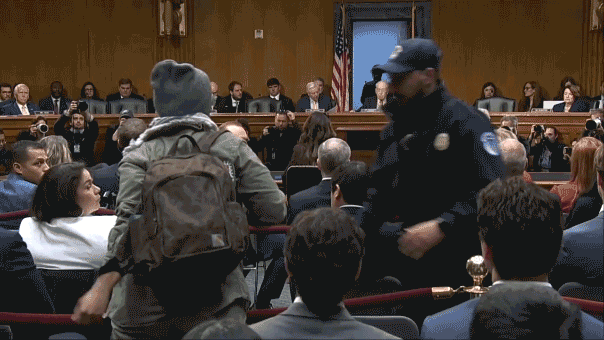Fox News Flash top headlines for July 5
Fox News Flash top headlines are here. Check out what's clicking on Foxnews.com.
Treating ectopic pregnancies is still legal in all states where abortion is banned, despite media personalities, celebrities and even elected officials spreading false information about its legality following the Supreme Court’s overturning of Roe v. Wade.
An ectopic pregnancy is when a fertilized egg implants outside the uterus, typically in one of the woman’s fallopian tubes. It’s a rare complication, occurring in only about 1.5% of all pregnancies, and can be life-threatening if left untreated. The pregnancy is never viable, and the most common way to treat it is through medication to end the pregnancy or through surgery to remove it.
After the Supreme Court decided last month to overturn Roe v. Wade, ending the constitutional right to an abortion and returning the question back to the states, pro-choice advocates argued that the decision would kill women. Some of them even claimed that seeking treatment for an ectopic pregnancy in some states could land a woman behind bars.
"’Do I abort this ectopic pregnancy to literally save my life or do I go to jail?’" Daily Beast columnist Wajahat Ali mused on Twitter. "Question women in America now have to ask."
"A lot of these state laws are very poorly written," Rep. Alexandria Ocasio-Cortez, D-N.Y., said in an Instagram rant Friday. "I'm sorry, but a bunch of men who are very ignorant about medicine, biology, rape culture, and the misogyny that they were raised in, including legal liability and how it factors in with the medical field – people who are ignorant to all of that are the ones that are writing these laws.

Rep. Alexandria Ocasio-Cortez speaks during a rally on immigration outside the U.S. Capitol, Dec. 7, 2021. (Drew Angerer/Getty Images)
"Some of them were even written in the 1800s," she continued. "So don’t tell me that people in the 1800s knew what an ectopic pregnancy was."
Social media users were quick to point out that the first successful documented surgery to treat an ectopic pregnancy was in the late 1800s.
"If the MAGA Republicans get their way, pregnant women could lose their lives," Senate Majority Leader Chuck Schumer, D-N.Y., warned in May, "because there will be no exception for the life of a mother if there’s a dangerous complication in the pregnancy."
There are 13 states in the U.S. that have trigger laws in place banning abortion in the event of Roe v. Wade being overturned – Arkansas, Idaho, Kentucky, Louisiana, Mississippi, Missouri, North Dakota, Oklahoma, South Dakota, Tennessee, Texas, Utah and Wyoming. There are also five additional states – Alabama, Arizona, Michigan, West Virginia and Wisconsin – that still have an abortion ban on the books from before Roe v. Wade that will go into effect now that the 1973 landmark law is overturned.
All of those states include exemptions for medical emergencies and allow abortions to be performed if the mother’s life is at risk. Many states also have laws specifically exempting treatment for ectopic pregnancies under the states’ abortion statutes. Additionally, federal law currently requires the U.S. Department of Health and Human Services to provide abortion medication in limited circumstances, including rape, incest or if the life of the woman is in danger.

Protesters march around the Arizona Capitol in Phoenix after the Supreme Court decision to overturn Roe v. Wade on June 24, 2022. (AP Photo/Ross D. Franklin)
A recent report by The New York Times acknowledged those exemptions exist but said at issue is the confusion that the vagueness of some state laws may cause when time is of the essence in determining how to treat an ectopic pregnancy.
"We’re already seeing on Twitter and elsewhere physicians being scared to treat ectopic pregnancies," Dr. Aileen Gariepy, director of complex family planning at Weill Cornell Medicine in New York City, told the publication. "As doctors, our job is to follow science and evidence-based medicine, it is keeping up-to-date and doing what’s right for the patient. It is not the nuances of how state legislatures wrote something."
"These laws will have a chilling effect on clinicians, because they don't want to be accused of committing a crime," Daniel Grossman, a professor of obstetrics, gynecology and reproductive sciences at University of California San Francisco, told Politifact. "They may wait until the clinical presentation evolves to the point where it's really clear that the person's life is at risk, for example, waiting until the fallopian tube may have ruptured before intervening. That would be very bad medical care."
"The power for a medical provider to save a mother or even anybody's life has now been etched away, and it's being put in the hands of the hospital’s lawyer. A lawyer," Ocasio-Cortez said in her Instagram video.
ABORTION RIGHTS TO EXPAND IN BLUE STATES AFTER ROE V WADE OVERTURNED IN DOBBS DECISION
However, experts on the other side of the issue say the speculation is unwarranted.
Dr. Christina Francis, chair of the board of the American Association of Pro-Life Obstetricians and Gynecologists, told World magazine she doesn’t know of "a single state law that would limit a physician’s ability" to care for women with ectopic pregnancies, recalling that she treated thousands of patients with miscarriages and ectopic pregnancies when she worked at a Catholic hospital.
In fact, the more than 600 Catholic hospitals throughout the country, which do not perform abortions, all treat ectopic pregnancies and miscarriages, World reported.

Pro-life crowd cheers Supreme Court decision overturning Roe v. Wade. (Joshua Comins/Fox News)
Chelsey Youman, national legislative adviser to the pro-life Human Coalition, told World magazine there is "no law that would outlaw ectopic pregnancy or miscarriage treatment," adding, "All of those treatments are done with the intent to treat a health care diagnosis, not with the intent to end the life of an innocent human being, and that’s a very important distinction to make."
CLICK HERE TO GET THE FOX NEWS APP
Dr. Ingrid Skop, a Texas-based obstetrician and director of medical affairs at the pro-life Charlotte Lozier Institute, told National Review that "no matter how an obstetrician feels about abortion, we all treat ectopic pregnancies the same way. … We feel compelled to treat it as soon as possible."
"There is no doubt in my mind as an obstetrician," said Skop, that treatment should occur immediately and that such treatment is legal.













































